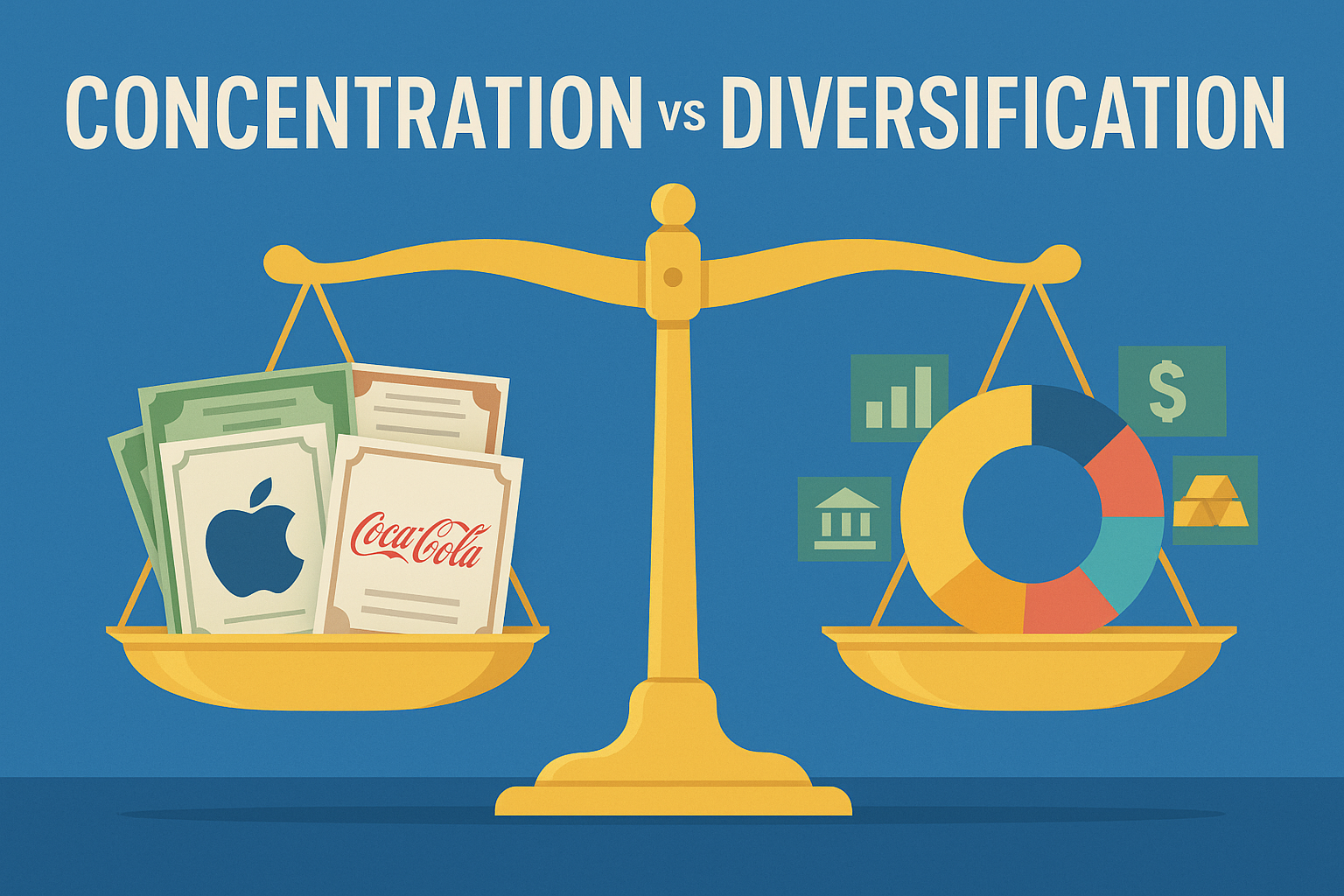Introduction
“Diversification is protection against ignorance.”
Warren Buffett
At the 2024 Berkshire Hathaway annual meeting, Warren Buffett officially announced he would step down as CEO, passing the torch to Vice-Chairman Greg Abel. After nearly 60 years of investing brilliance, Buffett leaves behind a legacy that includes an astonishing cumulative return of over 5.5 million percent. That’s not a typo. And no, he didn’t get there by diversifying.
So, why should you diversify?
That’s the paradox this article explores: why the world’s most famous investor warns you to diversify while he himself built wealth through concentrated bets.
The Buffett Paradox
Buffett has long questioned the value of diversification for knowledgeable investors:
“Diversification is a protection against ignorance. It makes very little sense for those who know what they’re doing.”
For Buffett, the key to building wealth was deep understanding—of businesses, management teams, and long-term trends. That allowed him to concentrate capital in just a few companies he truly believed in.
But here’s the thing: you’re not Warren Buffett, and neither am I.
Buffett himself would agree with that. Despite running a highly concentrated portfolio, he advises retail investors to diversify, often recommending low-cost index funds as the best default option.
So how should we think about this apparent contradiction?
Concentration Builds Wealth, Diversification Preserves It
This distinction is critical:
- Concentration has the potential to build extraordinary wealth – if you’re right and that is a big if.
- Diversification is how most investors survive being wrong—which we all are, eventually.
Buffett’s approach works because he’s had:
- Decades of experience
- An institutional setup for deep research
- Patience and capital to hold through massive drawdowns
Retail investors, in contrast, typically face:
- Time constraints
- Limited information
- Emotional decision-making
- Lack of portfolio discipline
That’s where diversification comes in – not as a compromise, but as a strategy for staying in the game long enough to benefit from compounding.
Why Retail Investors Should Diversify
Here are four compelling reasons why diversification is still your best friend:
1. You Can’t Predict the Future
No matter how confident you are in a company or sector, surprises happen. Diversification reduces the impact of being wrong.
2. Behavioral Mistakes Are Real
Concentrated portfolios can swing wildly. That volatility tempts emotional decisions—panic selling, chasing winners, abandoning long-term plans.
3. You’re Likely Time-Constrained
Buffett reads 500 pages a day. You probably don’t. Most investors simply don’t have the time or desire to analyse businesses deeply enough to justify concentration.
4. You Can Still Achieve Great Returns
A diversified portfolio doesn’t mean watered-down performance. With exposure to global equities, bonds, commodities, and alternatives, you can earn strong risk-adjusted returns – without betting the farm on a single idea.
So Why Doesn’t Buffett Diversify?
Let’s be clear: Buffett does diversify – to a point.
As of mid-2024, Berkshire Hathaway holds 47 stocks, but 75% of the portfolio is concentrated in just five: Apple, Bank of America, American Express, Coca-Cola, and Chevron.
And 44% of the entire portfolio is in Apple alone.
That’s concentration on steroids.
But Buffett isn’t suggesting you follow his lead. He knows:
- Most investors lack the tools to identify long-term compounders
- Few can stomach large losses without bailing out at the worst time
- Concentrated bets can destroy wealth as quickly as they build it
So he tells retail investors: diversify.
What Diversification Actually Looks Like
Real diversification isn’t just owning 50 stocks. It means:
- Exposure across asset classes: stocks, bonds, real estate, gold, cash
- Exposure across regions: U.S., Europe, Asia, emerging markets
- Exposure across sectors: tech, healthcare, energy, consumer staples
This mix protects you from single points of failure – whether that’s a crashing stock, a collapsing country, or a bursting bubble.
You can achieve this easily today using:
- Index ETFs (e.g., VTI, VEA, VWO, TLT, EMB, GLD, VNQI, etc.)
- Balanced funds
- Model portfolios (like those featured on StoffelWealth)
The Takeaway: Know Yourself First
If you’re reading this article, chances are you’re not looking to become the next Buffett. You want to grow your wealth steadily, without blowing up your portfolio or losing sleep.
So here’s a practical framework:
| Investor Type | Recommended Approach |
| New / passive investor | Broad diversification via index funds or ETFs |
| Intermediate investor | Core diversified portfolio with small concentrated “satellite” bets |
| Professional analyst | Possibly concentrated, if research and discipline allow |
Buffett’s wisdom isn’t about concentration vs diversification – it’s about knowing what you’re doing. If you’re not sure, diversify. It’s not a cop-out. It’s common sense.
Final Thoughts
Warren Buffett became a billionaire by concentrating. But he stays humble enough to know it’s not for everyone.
For most of us, diversification isn’t a sign of weakness. It’s how we stay in the game, compound our savings, and build real wealth over time.
Should you be interested to learn more about Buffet’s portfolio, check out the paper Buffet’s Alpha by by Frazzini, Kabiller, and Pedersen (2018).

